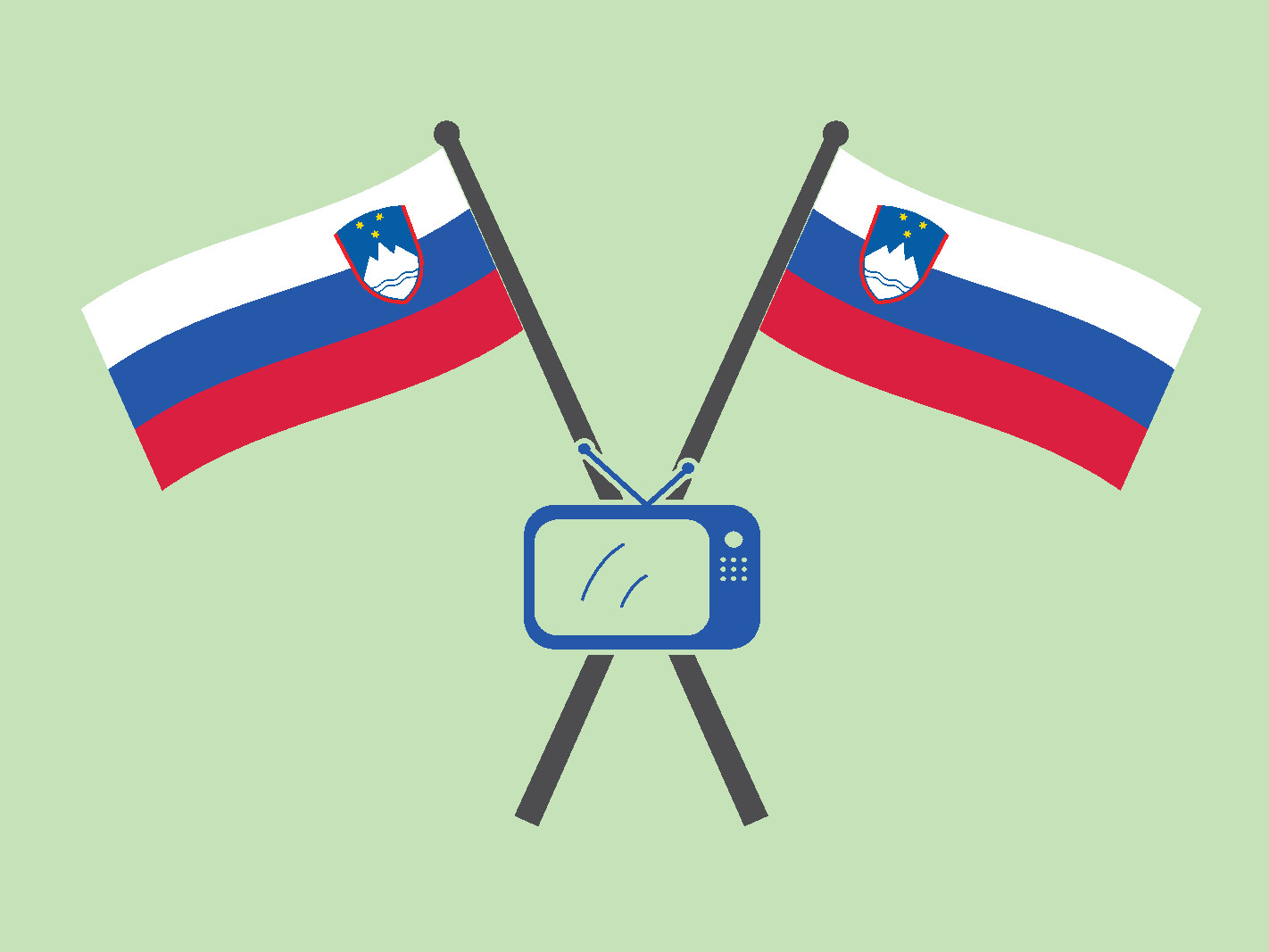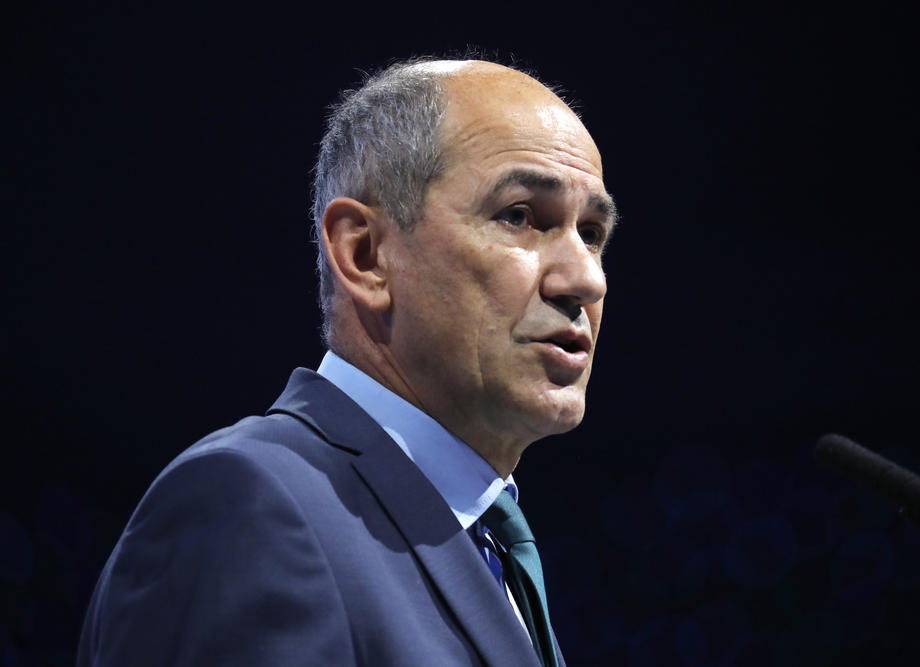
The International Press Institute (IPI), a global network of editors, media executives and leading journalists for press freedom, today expressed its growing concern about the increasing climate of hostility towards journalists and executives at Slovenia’s public broadcaster Radiotelevizija Slovenija (RTVS).
In recent months, the national TV and radio broadcaster and its staff have been the target of frequent online smears and gender-based insults by members of the public, right-wing media outlets and on some occasions leading politicians, including the prime minister.
Most recently, on June 1 Eugenija Carl, a journalist at RTVS’s TV Koper-Capodistria received an envelope addressed to her containing a threatening handwritten note and a mysterious white powder which she said caused irritation and gave her a sore throat.
Initial investigations concluded that the substance was not life threatening, however the office was put under quarantine for a few hours. Further tests are currently being carried out to establish the identity of the substance.
Carl has been subjected to online harassment and threatening letters before and is a common target of smears in right-wing media outlets. She was thrust into the spotlight in 2016 after the current PM, Janez Janša, then an opposition politician, infamously called her and another journalist “worn-out prostitutes” in retaliation for critical reporting.
Previously, on March 31, a crew from RTVS was verbally abused and threatened in the street by an unidentified individual as they were reporting from the capital Ljubljana. After walking away, the assailant then returned to the crew’s company vehicle and damaged the tyres. Days previously, another RTVS vehicle was vandalized.
Sources inside RTVS who spoke to IPI described a hostile climate for journalists that has steadily worsened over the past two years. One who spoke anonymously blamed growing polarization in Slovenia, which they said was leading to attacks on RTVS from both left and right-wing groups.
IPI Deputy Director Scott Griffen said that while much of the hostility aimed at RTVS comes from members of the public, fringe political groups and party-linked media outlets, several outspoken figures in the new government have legitimized attacks and added fuel to the fire.
“In the last few months already worrying levels of intimidation and insults aimed at RTVS and its journalists have reached boiling point”, he said. “Its staff face almost daily attacks and insults online. The verbal attacks from politicians are making the situation worse, fuelling further harassment and potentially putting journalists’ safety at risk.
“Criticism is of course natural in a democracy. But figures within the government, including the prime minister, must stop their aggressive efforts to undermine the integrity, independence and public trust in Slovenia’s public broadcaster, and instead work to defuse tensions. High levels of public distrust of the national broadcaster are in no one’s interest, especially during the current crisis.”

Attacks from the top down
Slovenia’s veteran prime minister, Janez Janša, who returned to power for a third term in early March, has long been an opponent of the broadcaster. During his time in opposition he was involved in a campaign to abolish the TV license fee and claimed to not pay the mandatory charge himself, arguing RTVS has long been biased against his right-wing SDS party.
These views are now espoused from the highest office in the country. As prime minister, Janša has publicly attacked the broadcaster on Twitter on numerous occasions. In March, he accused RTVS of spreading disinformation about the government and issued a veiled threat over its funding. “Do not spread lies. We pay you to inform, but not to mislead the public during these times. Obviously there are too many of you and you are paid too well,” he tweeted. After the comments, pro-government weekly magazine Demokracija labelled a number of its journalists as “terrorists”.
In a now infamous letter written by Janša in May entitled “War with the media“, the PM singled out the RTVS as a “media killer”, accusing it of feeding “an atmosphere of intolerance and hatred (…) created by a narrow circle of female editors with family and capital ties to the pillars of the deep state”.
Exerting greater influence
The Ministry of Culture is currently said to be working on draft changes to the Mass Media Act, the Radiotelevizija Slovenija Act and the Audiovisual Media Services Act, with plans to partially restructure and defund the broadcaster by sharing money from the license fee between other media outlets. RTVS has asked the government to increase its funding.
At the same time, Janša’s ruling centre-right SDS party, which leads a four-party coalition, has moved to exert greater influence over RTVS’s executive bodies.
On April 16, the government also dismissed three members of RTVS’s Supervisory Board before their mandate had ended and replaced them with pro-government candidates. A move to replace another two members was met with a strong opposition and eventually blocked by a parliamentary committee on the grounds that it broke the law by allowing the government to have too much control over the body. The Supervisory Board plays a key role in the financing of RTVS.
In May, six candidates seen as supportive of the government were then elected to sit on the body’s programming council, which selects RTVS’s director-general and overseas the editorial line.
While Janša is the most outspoken detractor of RTVS, he is far from alone in the administration. Another critic is the country’s new interior minister, Aleš Hojs, who before taking up his post was the chairman of the board of Nova24TV, right-wing news media founded in part by members of the SDS party. Nova24’s website has long been filled with targeted smears against individual journalists and opinion pieces dismissing and discrediting RTVS journalists as “communists” or overtly left-wing.
Much of the criticism and personnel changes followed a series of investigative reports that RTVS broadcast in May about irregularities in deals made by the Slovenian government to purchase protective medical equipment during the Covid-19 crisis. The revelations made during the reports have become one of the issues at the centre of weekly anti-government protests in Ljubljana and across the country.
IPI is part of the Media Freedom Rapid Response (MFRR) which tracks, monitors and responds to threats to journalists and violations of press and media freedom across Europe.
